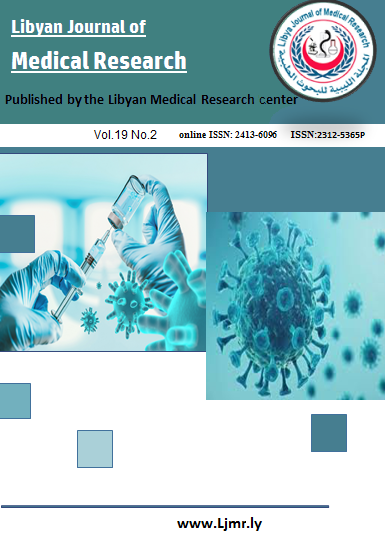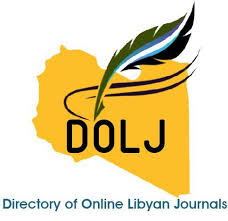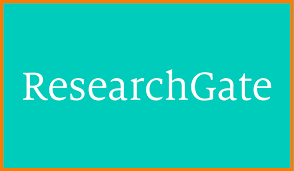A Comprehensive Review of Respiratory Failure: Pathogenesis, Clinical Strategies, Ethical Challenges, and Preventive Approaches: A Literature Review
DOI:
https://doi.org/10.54361/LJMR.19.2.28Keywords:
Respiration, Respiratory Failure, Definition, Classifications, Causes, Pathogenesis, Symptoms, Complications, Diagnosis, Treatment & Prevention, as well as Ethical ConsiderationsAbstract
Background: Respiration is a fundamental biological process that sustains life through the exchange of oxygen and carbon dioxide between the body and its environment. This perfectly balanced mechanism is vulnerable to disruptions from many causes, leading to various respiratory disorders. Among these, respiratory failure represents the most serious outcome, when the body is no longer able to maintain adequate gas exchange. Understanding this condition is crucial, as it lies at the intersection of physiology, pathology, and clinical care. Objectives: This review aims to clarify the principles of respiration and provide a clear definition of respiratory failure. It classifies the main types, examines the underlying causes and pathogenesis, and describes the symptoms patients may present with, as well as potential complications. It also addresses diagnostic methods, available therapeutic options, and prevention strategies. The ethical aspects of care are also highlighted, emphasizing the responsibility of clinicians in decision-making. Ultimately, this review aims to provide healthcare professionals with an integrated perspective that can improve patient outcomes and guide future clinical and research work. Conclusion: Our “Beyond Breath” journey redefines respiratory failure as a physiological crisis and a paradox. Three key insights define the way forward. First, the COVID-19 pandemic has blurred the line between acute and chronic respiratory failure, making integration essential. Second, while mechanical ventilation remains vital, its risks require AI-based lung-protective approaches aligned with natural physiology. Third, the inseparable link between mind and breath underscores the importance of psychological support in recovery. Looking ahead, respiratory medicine is entering a transformative era that unites science, technology, and humanism. “Breathing for others is the highest calling of medicine; our actions today shape our future, with Allah’s permission.”
Downloads
References
1. Brems, C. (2024). Understanding the Physiology of Breath and Breathing. In Therapeutic Breathwork: Clinical Science and Practice in Healthcare and Yoga (pp. 99-126). Cham: Springer Nature Switzerland.
2. Jolley, C. (2025). Respiratory physiology. In Ernsting's Aviation and Space Medicine (pp. 28-47). CRC Press.
3. Hari, M. S., & Mackenzie, I. M. (2007). Respiratory failure. Surgery (Oxford), 25(9), 380-387.
4. Nicholson, T. W., Talbot, N. P., Nickol, A., Chadwick, A. J., & Lawton, O. (2020). Respiratory failure and non-invasive respiratory support during the covid-19 pandemic: an update for re-deployed hospital doctors and primary care physicians. bmj, 369.
5. Suh, E. S., & Hart, N. (2012). Respiratory failure. Medicine, 40(6), 293-297.
6. Webster, L. R., & Karan, S. (2020). The physiology and maintenance of respiration: a narrative review. Pain and Therapy, 9(2), 467-486.
7. Suarez, C. J., Dintzis, S. M., & Frevert, C. W. (2012). Respiratory. In Comparative anatomy and histology (pp. 121-134). Academic Press.
8. Pokorski, M. (Ed.). (2012). Respiratory Regulation-Clinical Advances (Vol. 755). Springer Science & Business Media.
9. Nitu, M. E., & Eigen, H. (2009). Respiratory failure. Pediatrics in Review, 30(12), 470-478.
10. Ernest, V. (2020). Respiratory failure: Classification, Epidemiology and Etiology Review. Journal La Medihealtico, 1(2), 15-20.
11. Powell, L. L. (2002). Causes of respiratory failure. Veterinary Clinics: Small Animal Practice, 32(5), 1049-1058.
12. Belda, F. J., Soro, M., & Ferrando, C. (2013). Pathophysiology of respiratory failure. Trends in Anaesthesia and Critical care, 3(5), 265-269.
13. Lehman, L., Picone, M. A., & Halper, J. (2001). Pulmonary complications. Advanced concepts in multiple sclerosis nursing care, 137-148.
14. Delerme, S., & Ray, P. (2008). Acute respiratory failure in the elderly: diagnosis and prognosis. Age and ageing, 37(3), 251-257.
15. Ray, P., Birolleau, S., Lefort, Y., Becquemin, M. H., Beigelman, C., Isnard, R., ... & Boddaert, J. (2006). Acute respiratory failure in the elderly: etiology, emergency diagnosis and prognosis. Critical care, 10(3), R82.
16. de Anda, G. F. V., & Lachmann, B. (2001). Treatment and prevention of acute respiratory failure: Physiological basis. Archives of medical research, 32(2), 91-101.
17. Hemmila, M. R., & Napolitano, L. M. (2006). Severe respiratory failure: advanced treatment options. Critical care medicine, 34(9), S278-S290.
18. Pépin, J. L., Timsit, J. F., Tamisier, R., Borel, J. C., Lévy, P., & Jaber, S. (2016). Prevention and care of respiratory failure in obese patients. The lancet Respiratory medicine, 4(5), 407-418.
19. Sundar, D. (2024). Integrating Psychological Interventions into Holistic Management of Chronic Respiratory Diseases-Update Review. ScienceOpen Preprints.
20. Simonds, A. K. (2003). Ethics and decision making in end stage lung disease. Thorax, 58(3), 272-277.
21. Wiesen, J., Donatelli, C., Smith, M. L., Hyle, L., & Mireles-Cabodevila, E. (2021). Medical, ethical, and legal aspects of end-of-life dilemmas in the intensive care unit. Cleve Clin J Med, 88(9), 516-527.
Downloads
Published
Issue
Section
License
Copyright (c) 2025 Rihab Abdlsalam Alweshahi, Mohamed A. Elwafi, Abofila MTM, Azab Elsayed Azab, Khaled Abdulmola, Mouni AAA (Author)

This work is licensed under a Creative Commons Attribution-NonCommercial-NoDerivatives 4.0 International License.
Open Access Policy
Libyan journal of medical Research (LJMR).is an open journal, therefore there are no fees required for downloading any publication from the journal website by authors, readers, and institution.
The journal applies the license of CC BY (a Creative Commons Attribution 4.0 International license). This license allows authors to keep ownership f the copyright of their papers. But this license permits any user to download , print out, extract, reuse, archive, and distribute the article, so long as appropriate credit is given to the authors and the source of the work.
The license ensures that the article will be available as widely as possible and that the article can be included in any scientific archive.
Editorial Policy
The publication of an article in a peer reviewed journal is an essential model for Libyan journal of medical Research (LJMR). It is necessary to agree upon standards of expected ethical behavior for all parties involved in the act of publishing: the author, the journal editorial, the peer reviewer and the publisher.
Any manuscript or substantial parts of it, submitted to the journal must not be under consideration by any other journal. In general, the manuscript should not have already been published in any journal or other citable form, although it may have been deposited on a preprint server. Authors are required to ensure that no material submitted as part of a manuscript infringes existing copyrights, or the rights of a third party.
Authorship Policy
The manuscript authorship should be limited to those who have made a significant contribution and intellectual input to the research submitted to the journal, including design, performance, interpretation of the reported study, and writing the manuscript. All those who have made significant contributions should be listed as co-authors.
Others who have participated in certain substantive aspects of the manuscript but without intellectual input should only be recognized in the acknowledgements section of the manuscript. Also, one of the authors should be selected as the corresponding author to communicate with the journal and approve the final version of the manuscript for publication in the LJMR.
Peer-review Policy
- All the manuscripts submitted to LJMR will be subjected to the double-blinded peer-review process;
- The manuscript will be reviewed by two suitable experts in the respective subject area.
- Reports of all the reviewers will be considered while deciding on acceptance/revision or rejection of a manuscript.
- Editor-In-Chief will make the final decision, based on the reviewer’s comments.
- Editor-In-Chief can ask one or more advisory board members for their suggestions upon a manuscript, before making the final decision.
- Associate editor and review editors provide administrative support to maintain the integrity of the peer-review process.
- In case, authors challenge the editor’s negative decision with suitable arguments, the manuscript can be sent to one more reviewer and the final decision will be made based upon his recommendations.















